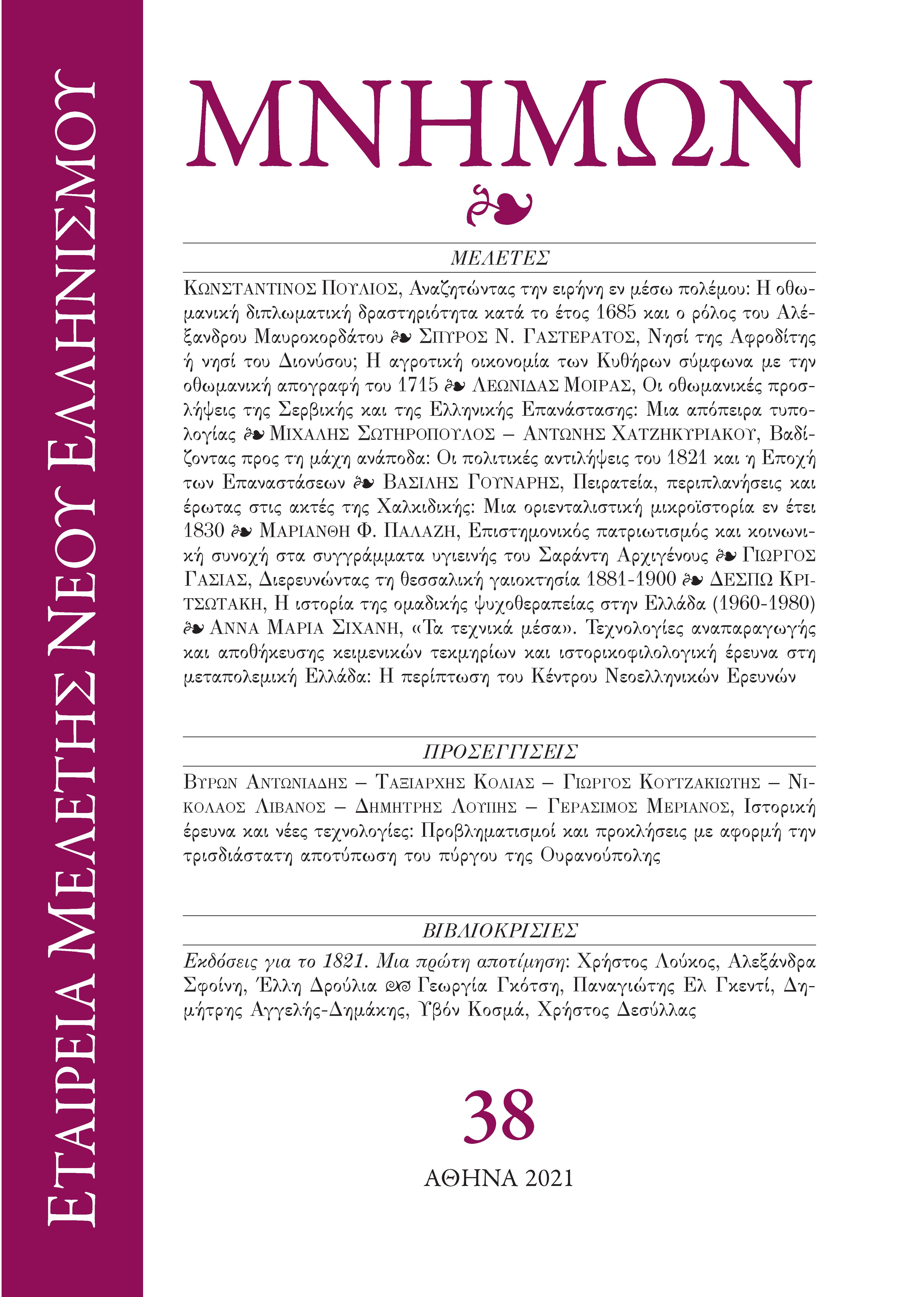THE HISTORY OF GROUP PSYCHOTHERAPY IN GREECE (1960s- 1980s)

Abstract
For most of the 20th century psychotherapies were only sporadically applied in Greece, and psychotherapeutic training was practically non-existent. Nevertheless, psychoanalysis had become known since the 1910s, and individual psychology since the 1930s, while different types of psychotherapy, including group psychotherapy, were being tried since the end of the 1950s. The article explores the history of the latter, from the first experiments in the end of the 1950s to the 1980s, when it was becoming more widespread. After examining the example of the Therapeutic Club of the Centre for Mental Health and Research of Thessaloniki (1965), the article focuses on the Open Psychotherapy Centre of Athens (OPC) (1980), where group therapy was the main treatment method. Employing written sources and oral history material from mental health professionals and former patients, the article argues that the OPC was a particular psychiatric institution, which, at the same time, was an example and vehicle of the dissemination of psychotherapy, the psychiatric reform and the politicisation taking place in Greece in the late 1970s and early 1980s. All in all, the article claims that the history of group psychotherapy in the 20th century was closely connected with a political vision of the “psy” sciences, which expected mental health professionals to engage in the interpretation and shaping of their society.
Article Details
- How to Cite
-
KRITSOTAKI, D. (2024). THE HISTORY OF GROUP PSYCHOTHERAPY IN GREECE (1960s- 1980s). Mnimon, 38(38), 181–202. https://doi.org/10.12681/mnimon.38230
- Issue
- Vol. 38 (2021): Μνήμων
- Section
- ARTICLES

This work is licensed under a Creative Commons Attribution-NonCommercial-ShareAlike 4.0 International License.
The copyright for articles in this journal is retained by the author(s), with first publication rights granted to the journal. By virtue of their appearance in this open access journal, articles are free to use (with the exception of the non-granted right to make derivative works) with proper attribution for non-commercial uses (licence Creative Commons 4.0). EKT/NHRF retains the worldwide right to reproduce, display, distribute, and use articles published in Mnimon in all formats and media, either separately or as part of collective works for the full term of copyright. This includes but is not limited to the right to publish articles in an issue of the Journal, copy and distribute individual reprints of the articles, authorize reproduction of articles in their entirety in another EKT/NHRF publication, and authorize reproduction and distribution of articles or abstracts thereof by means of computerized retrieval systems.

